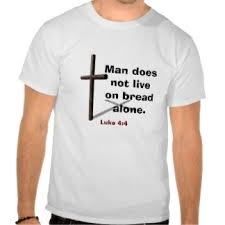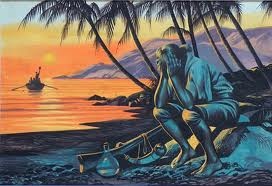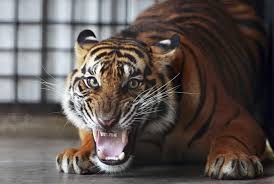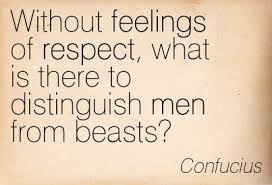
It is admitted on all hands that bread is the ultimate consideration that impels, man to work and struggle in life. Little wonder, indeed, if man directs his physical and intellectual resources to the procurement of bread. It is all-necessity, an all-important item that sustains our very existence. Its ideal is a bitter reality that man must strive for. And, naturally enough, man concentrates all his activities to the attainment of this goal. One goes to the battle field, while another plies has share diligently and tills the ground. One works on the machines, while another hawks articles. One labors in coal mines, while another toils in sandy plains under the scorching sun. And what is all striving for? Just for a piece of bread. But with all the superiority that bread claims over all other necessaries of life like clothes and a house, it yet remains to be seen if one can live to the neglect of all those factors to which one owes one’s existence, and which are in no way less important than bread itself.
One labors in coal mines, while another toils in sandy plains under the scorching sun. And what is all striving for? Just for a piece of bread. But with all the superiority that bread claims over all other necessaries of life like clothes and a house, it yet remains to be seen if one can live to the neglect of all those factors to which one owes one’s existence, and which are in no way less important than bread itself.
Now the question is, what else, besides bread, is needed for life; the first and the foremost requirement of life is its link with family, the society and the humanity at large.  Wherever and whenever such a link is denied to an individual, life becomes intolerable, insipid and dead. For man is essentially a social animal. He cannot live without it. Deprived of a human society he may live either like an angel or like a beast, but by no means like a man. A life cut off from social and family ties and isolated from human habitation is a condemnable life, a life least worth cherishing.
Wherever and whenever such a link is denied to an individual, life becomes intolerable, insipid and dead. For man is essentially a social animal. He cannot live without it. Deprived of a human society he may live either like an angel or like a beast, but by no means like a man. A life cut off from social and family ties and isolated from human habitation is a condemnable life, a life least worth cherishing. We can well picture the life of Alexander Selkirk who was driven to lonely island, where he had every thing to eat but no human soul to converse with. It was there that he wished for death. It was there that he knew the value of society, friendship and love, “divinely bestowed upon man”. Only one condemned to a solitary confinement can realize that what is needed for life is something more than bread alone.
We can well picture the life of Alexander Selkirk who was driven to lonely island, where he had every thing to eat but no human soul to converse with. It was there that he wished for death. It was there that he knew the value of society, friendship and love, “divinely bestowed upon man”. Only one condemned to a solitary confinement can realize that what is needed for life is something more than bread alone.
Further a glimpse into the human heart reveals still more the truth of the statement. Man is not only a social being, but an embodiment of emotions, aspiration hopes, interest and like. A man may have the facilities of bread to his heart’s content but the experience of frustration or thwarted ambition is apt to beget in him a cynical attitude. He is likely to pass in the throes of intellectual pangs. Well he might know that the spectacles of life present a variety and diversity. If other people are happy, he is not bound to be so. Life, he finds, is a mingled yarn of joy and sorrow mixed together. The tide of grief may overwhelm him for the time being, but the storm would eventually subside, and give way to a period of calm and peace. Such comforting thoughts become prop for his dwindling life. Hope comes to his rescue. It upholds him in his misery and shows him a silver lining round a stable cloud thus calls upon him.
The tide of grief may overwhelm him for the time being, but the storm would eventually subside, and give way to a period of calm and peace. Such comforting thoughts become prop for his dwindling life. Hope comes to his rescue. It upholds him in his misery and shows him a silver lining round a stable cloud thus calls upon him.
“Be still, sad heart! And cease repining;
Behind the cloud is the sun still shining?
Thy fate is the common fate of all
Into each life some rain must fall,
Some days must be dark and dreary.”
Thus an optimistic view of life becomes not only his guiding star but the very quintessence of his life. Its spark is essential to reinforce and invigorate the languishing soul. For the moment its light is put out, life becomes dead which no bread can revive. Man lives on hope, without which his life would either come to an end or become the life of an animal. 
For as Alexander Pope sings
Hope springs eternal in the human breast;
Man never is but always to be blest
Hope breeds interest that eventually leads to contentment. After hope interest is equally necessary for the upkeep of a human life. Bread may save the body from decaying, but a genuine interest in life saves the soul from disintegration. To live without the feeling of interest is like vegetating without aim. Bread helps in the growth of human life, as water helps in the growth of plants. What distinguish man from beasts and trees are his sensibilities, understanding, consciousness and the power of imagination.
What distinguish man from beasts and trees are his sensibilities, understanding, consciousness and the power of imagination.  These things are indispensable for the development of human personality. An animal has no sense of discrimination, whereas man has. He knows right from wrong, virtue from vice, good from bad and a healthy growth from an unhealthy one. He must need to realize that he is not a mere existence for which bread alone is needed, but a life, a human life, for which so many feelings and reactions are inevitable. He has not merely a feeding stomach; but no boot, a brain, to think and a heart to feel. Hence, man does not live by bread alone.
These things are indispensable for the development of human personality. An animal has no sense of discrimination, whereas man has. He knows right from wrong, virtue from vice, good from bad and a healthy growth from an unhealthy one. He must need to realize that he is not a mere existence for which bread alone is needed, but a life, a human life, for which so many feelings and reactions are inevitable. He has not merely a feeding stomach; but no boot, a brain, to think and a heart to feel. Hence, man does not live by bread alone.
Written By: Syed Faiz Mujtaba



